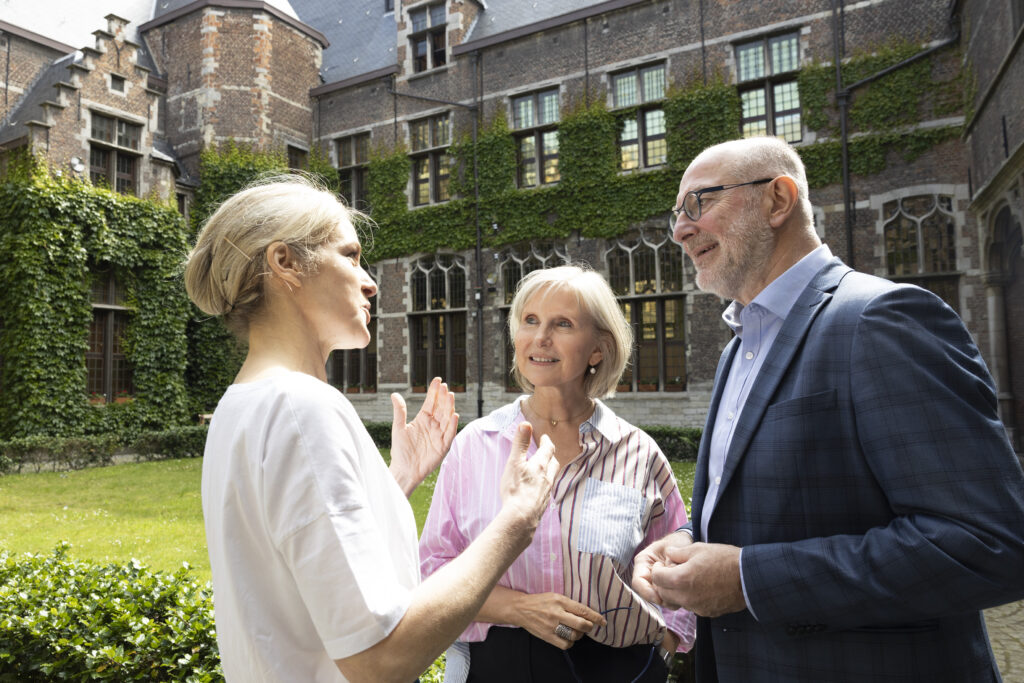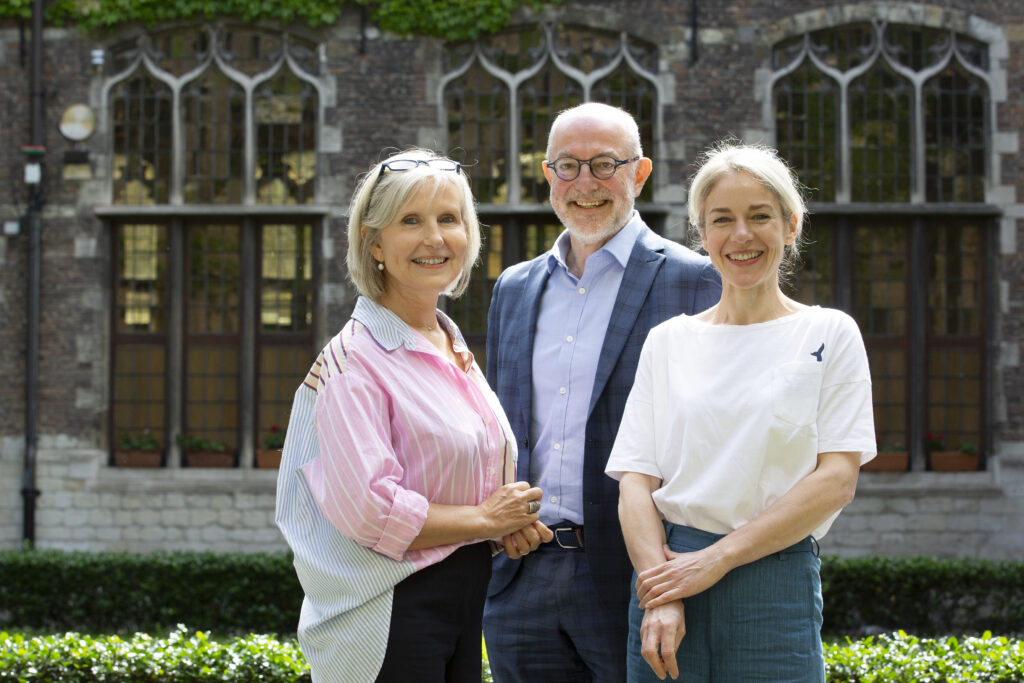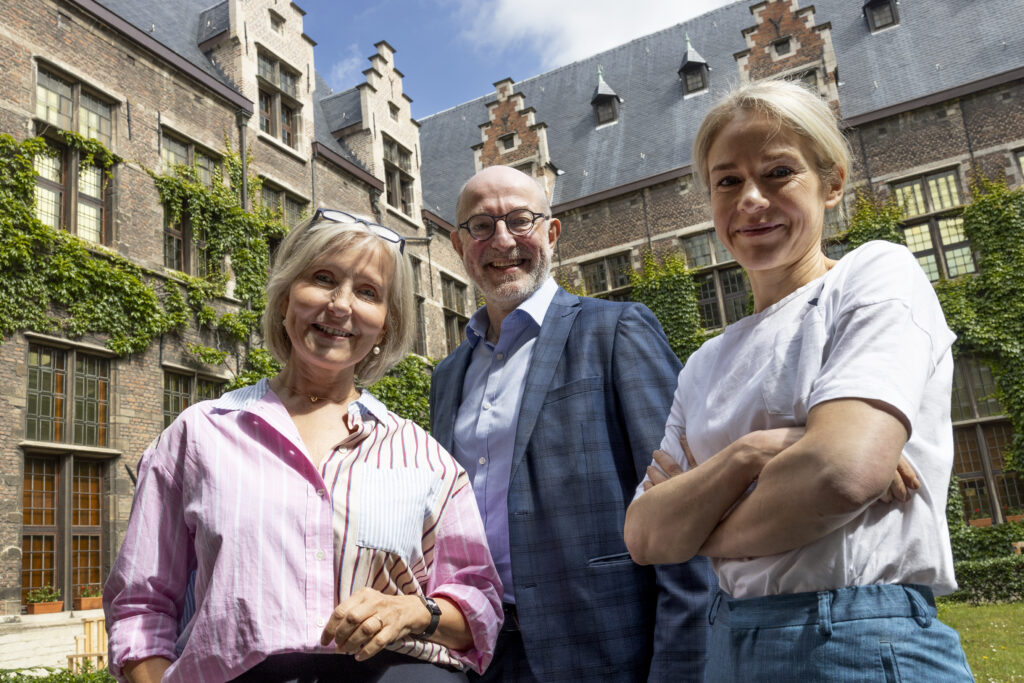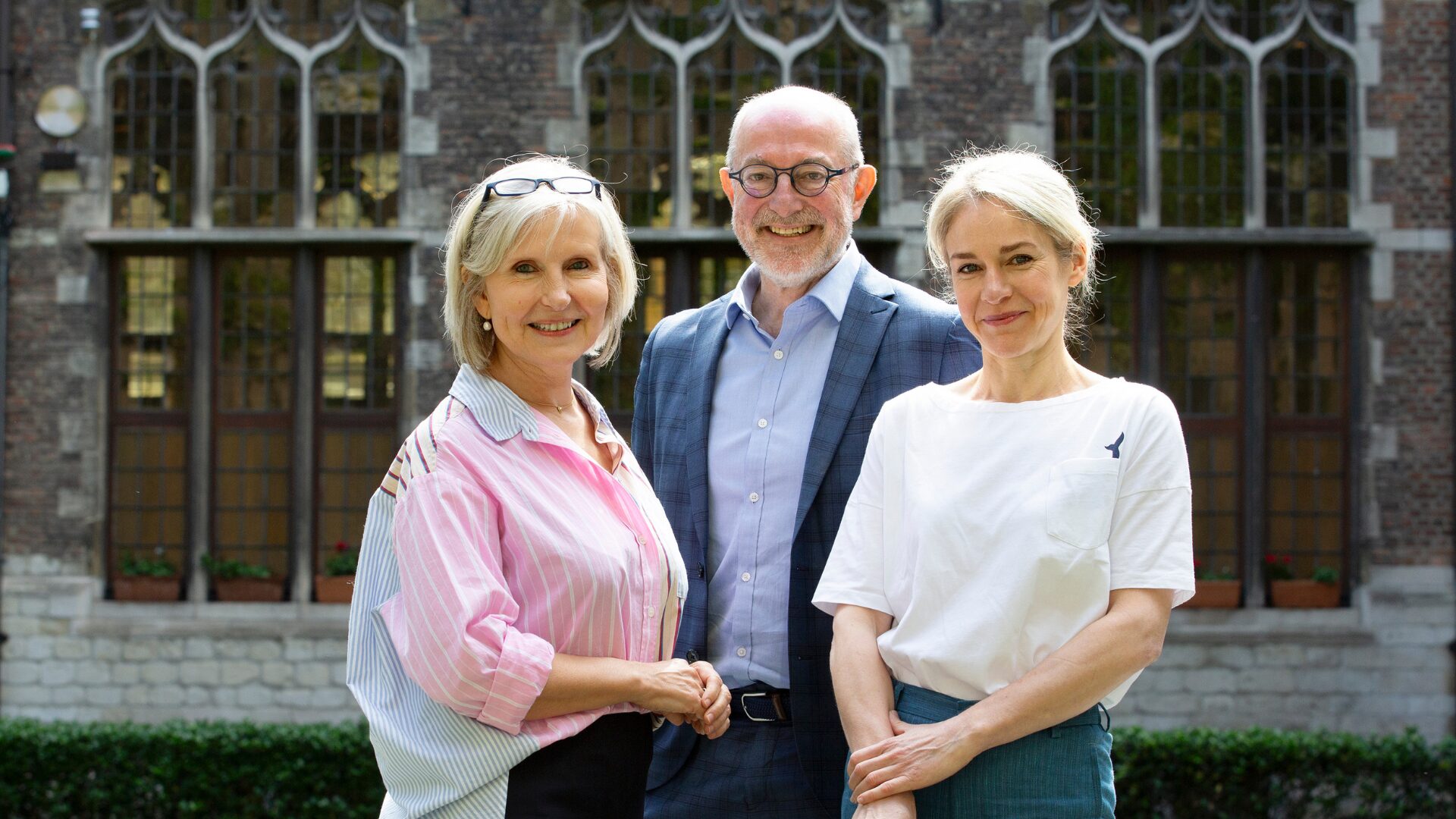Antwerp Summer & Winter University (ASWU) is celebrating its fifteenth anniversary. We talked to initiator and Head of International Relations Sara Bervoets and with two driving forces from the very beginning, Professor Annick Schramme (Responsible Fashion Management) and Professor Pierre Van Damme (Vaccinology), about the significance of ASWU for the participants and for our university.
What was the need that was met by the founding of Antwerp Summer University fifteen years ago?
Sara: ‘At the time, the division between academic institutions and the labour market was very strict still. We wanted to build bridges, because a university should really be part of society. At the same time, we felt that students were looking for a closer connection with the professional field after graduating and professionals felt the need for further training at the university. We therefore wanted to attract visiting lecturers to integrate certain skills, which are important in the labour market, into the curriculum.’
‘I remember, for example, a law student who enrolled in an entrepreneurship summer school because she wanted to assist small businesses that were on the verge of bankruptcy. You also have people that come in for retraining, as the labour market has changed. For one thing, sustainability is a far more important topic these days. Doing a summer or winter school is also a way to hone one’s skills in an international setting, making it a valuable alternative to a traditional programme. But don’t mistake it for a holiday, because the days at a summer or winter school are long and tough.’
Pierre: ‘When it comes to vaccinology, we saw that this element was barely present in medical and pharmaceutical programmes at a fair few European universities. When we pitched him the idea of the summer schools, Johan Meeusen, vice-rector at the time, was immediately on board. It’s partly thanks to him that they were created.’
Annick: ‘The Fashion Management summer school perfectly complemented our Master of Cultural Management. Antwerp has worldwide renown as a fashion city and at the time, we didn’t have a programme focused on the business side of the fashion industry.’
What’s the student-to-professional ratio amongst participants?
Sara: ‘It’s often a mix of students, researchers and professionals. Last year, our participants were 44% students, 27% PhD students and 29% professionals.’

Sara Bervoets, Annick Schramme en Pierre Van Damme
Besides the knowledge you acquire, what are the advantages of doing a summer or winter school?
Annick: ‘Participants meet teachers and professionals belonging to their own fields of interest and thereby expand their networks. The groups are very small and interactive. And the teachers are very approachable.’
Pierre: ‘It’s also educational and enriching to see how people in other countries may take a vastly different approach to a situation. What’s more, you’re creating an entire batch of graduates that form a network in Europe, and sometimes even beyond, in our case with a thorough expertise in vaccinology. This had a big impact during COVID.
Sara: ‘It’s also a great way for the students to become acquainted with Antwerp. The welcoming session is at the Antwerp Town Hall and we also organise evening and weekend activities so the participants in the different programmes can get to know each other better.’
How do you look for topics?
Sara: ‘Mostly it’s teachers with a certain expertise that approach us. The elaboration of their idea is then supported by the Antwerp Summer & Winter University Office. We also aim to look at topics from the perspective of different fields of study. That interdisciplinary approach has become increasingly self-evident throughout those fifteen years.’
It’s not only taking a course, but also building a network
Professor Pierre Van Damme
Do you encourage colleagues with ideas to come forward?
Sara: ‘Absolutely. If you have an idea, do reach out to us. Antwerp Summer & Winter University grew considerably over the past fifteen years; we’d love for that growth to continue. Of course, it’s not just about the idea: its substantive elaboration does require a certain degree of engagement.’
Annick: ‘But you get a whole lot of energy and appreciation in return. The participants are extremely grateful and you really create a sense of community.’
Pierre: ‘It’s not easy to organise a summer school, but every time it’s a unique occasion that brings great satisfaction to everyone involved. What’s more, you teach in the presence of your peers and also learn from them. Over time, a multiplicator effect occurs. For Vaccinology, we’ve been getting Slovenian students year after year. They’ve now started to organise their own summer school on vaccines at the University of Ljubljana. That’s wonderful, obviously.’

Sara Bervoets, Annick Schramme en Pierre Van Damme
Are summer or winter schools also interesting for staff at UAntwerp itself?
Pierre: ‘Absolutely. Particularly for PhD students, it’s fascinating to be taught by foreign professors for a change. It also makes people in your own field of work and interest very approachable. So it’s not only taking a course, but also building a network.’
What changes have you made in the past fifteen years?
Annick: ‘As far as Fashion Management goes, professionals were our most important target audience at first, but student numbers have gradually increased. The focus has also changed: the summer school is fully themed around sustainability these days. It is now called Responsible Fashion Management. When it comes to sustainability, there’s still a lot of work to be done in the fashion industry. There’s a huge need for professional development, especially given the new European regulations that the industry is facing, to the point where we’re considering setting up a new postgraduate programme.’
‘Furthermore, it’s of course interesting that a credit system has been put in place now. Students can obtain ECTS for their curriculum and, as of two years ago, our programmes are also recognised as microcredentials in the context of lifelong learning.’
The offerings are always unique, flexible and highly attuned to what’s going on.
Professor Annick Schramme
So is a summer school a kind of testing ground for new ideas?
Annick: ‘It’s a very flexible concept in any case. It goes without saying it’s not a good idea to organise the same summer school for fifteen years; this won’t do anyone any good. The great thing about a summer school is that it allows you to respond to current needs. What’s also important is its high quality, both of the speakers and the organisation. Nothing’s left to chance. And the offerings are always unique, flexible and highly attuned to what’s going on in society.’
Why have you also started doing winter schools?
Sara: ‘Growth can be in terms of numbers, but also in terms of period covered. That’s also very interesting in the context of internationalisation, as academic calendars are very different all over the world and it’s obviously not summer everywhere at the same time.’

Annick Schramme, Pierre Van Damme en Sara Bervoets
What are the conditions to register?
Sara: ‘Some summer schools require prior knowledge, some don’t. Registration fees vary per programme, while some also distinguish between students and professionals.’
How important is Antwerp Summer & Winter University for UAntwerp?
Sara: ‘We contribute to UAntwerp’s reputation, both regionally and internationally, and provide a framework to develop those unique, short programmes with their finger on the pulse of society.’
What’s a nice anecdote from the past fifteen years you’d like to share?
Pierre: ‘When we started, we depended on the willingness of speakers. Now it’s the other way around. There is a number of speakers that ask us if they can come teach at a summer school. It’s taken fifteen years, but we’re now at the stage where people invite themselves (laughs).’
Annick: ‘I think it’s great to see how a visit to the haute couture ateliers in Paris inspires students. Under normal circumstances there’s no way you’d be allowed into such a place. So an exclusive visit like this is a unique experience.’
Sara: ‘Last winter, when it was summer in Johannesburg, we did our first-ever on-site winter school there. A heavily pregnant participant gave birth during the winter school. So we promptly awarded her baby a winter school participation certificate (laughs).’
All practical information and all summer and winter schools offered by our university can be found on the website. If you want to present an idea yourself, please go to the Pintra page for all the relevant information.


